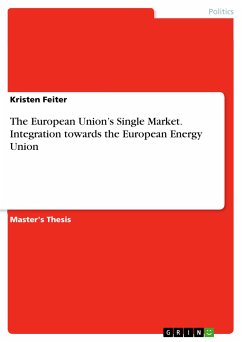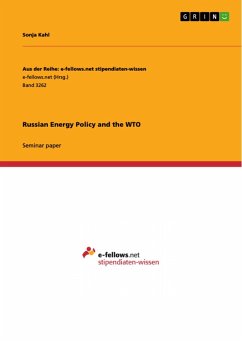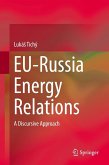Master's Thesis from the year 2018 in the subject Politics - Topic: European Union, grade: 7 / 9, Maastricht University, course: International Relations, language: English, abstract: The Regulation on the Governance of the Energy Union and Climate Action is a legislative act aiming to improve the governance structure of the internal energy market. The Regulation has been subject to academic dissensus and it remains unclear whether it has to be interpreted as a step towards renationalisation of the European Energy Policy or as increasing the powers of the Union's institutions. The discussion is caused by the Regulations' formulation which leaves room for interpretation and its effects are not sufficiently clear. This research aims to explain why the Governance Regulation materialised with ambiguous formulations. The issue is approached using Liberal Intergovernmentalist theory to explain this outcome. The theory can be used to explain regional integration and particularly European integration well and is based on intergovernmentalism but also includes aspects of realism and neo-liberalism which broadens the scope of the analysis. Concluding this contribution, it is found that the ambiguity of the Regulation was necessary due to cleavages among the Member States and to meet the smallest common denominator which allows for a first step of a common governance in European Energy Policy.
Dieser Download kann aus rechtlichen Gründen nur mit Rechnungsadresse in A, B, BG, CY, CZ, D, DK, EW, E, FIN, F, GR, HR, H, IRL, I, LT, L, LR, M, NL, PL, P, R, S, SLO, SK ausgeliefert werden.









